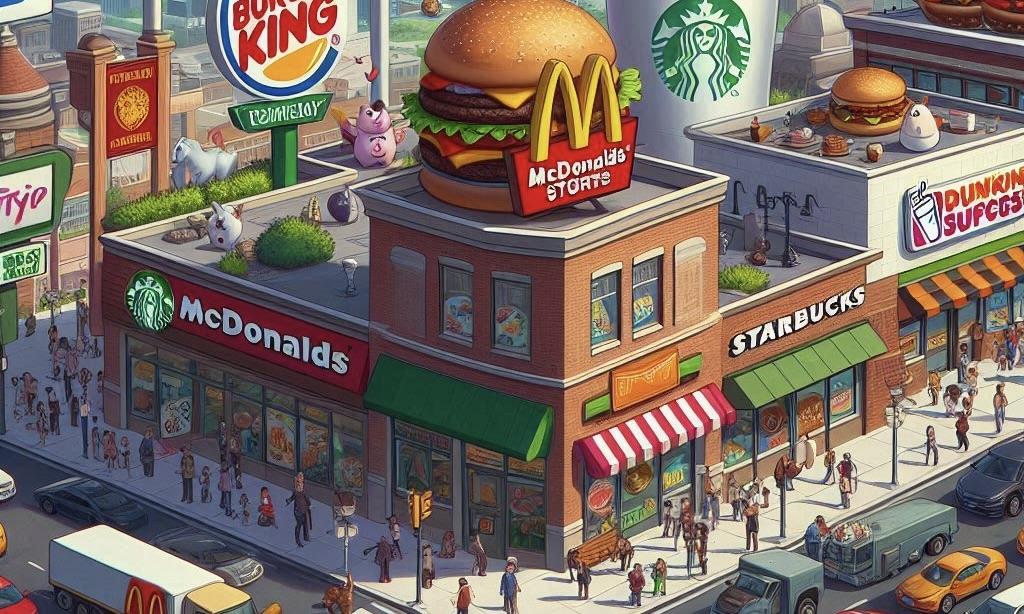As the senior population grows, major fast-food chains are shifting their focus to meet the dietary and lifestyle needs of elderly diners. McDonald’s, Burger King, Starbucks, Dunkin’, and others are introducing menu items designed to appeal to older customers, offering balanced meals, softer textures, and senior-friendly flavors.
This move reflects the increasing purchasing power of the elderly demographic, who now demand more from fast-food establishments than just speed and affordability. From nutrient-dense breakfasts to low-sugar beverages, these offerings aim to strike a balance between indulgence and health.
McDonald’s: A Nod to Comfort Foods
McDonald’s is rolling out lighter meal options that cater to common dietary restrictions among seniors, such as lower sodium and fewer calories. Menu highlights include oatmeal bowls with dried fruit and honey, as well as grilled chicken sandwiches tailored for easier digestion. For dessert, the chain promotes its iconic soft-serve cones, which are popular among older diners for their manageable portion sizes and nostalgic appeal.
Burger King: Senior-Friendly Sandwiches
Burger King is stepping up with simplified offerings that appeal to elderly customers. Its Whopper Jr., with fewer calories and a softer bun, is emerging as a favorite. The chain is also spotlighting its “King Jr.” value meals, featuring smaller portions and customizable sides like apple slices, which are softer and easier to chew.
Starbucks: Low-Sugar Coffee and Smooth Blends
Starbucks has introduced a series of low-sugar beverage options targeted at older customers looking to maintain their caffeine fix without overloading on sweetness. The chain’s herbal teas, decaf coffee options, and oat milk-based lattes are gaining traction among seniors. Additionally, Starbucks’ protein boxes—packed with fruits, cheeses, and nuts—offer convenient, balanced snacks for older customers on the go.
Dunkin’: Balanced Breakfast Choices
Dunkin’ is addressing senior customers with heart-healthy options such as egg white wraps and multigrain bagels. Their iced tea offerings, with customizable sweetness levels, are particularly popular among elderly patrons. Dunkin’ also highlights its senior discounts on coffee, encouraging older customers to make the chain part of their daily routine.
Catering to an Aging Population
Fast-food chains are increasingly recognizing the need to cater to the growing demographic of elderly diners, whose preferences often include softer, easily digestible foods, smaller portion sizes, and nutrient-dense ingredients. Many establishments are also incorporating discounts for seniors, further incentivizing this loyal customer base.
Nutritionists praise the shift toward healthier options but caution that not all offerings are as beneficial as they appear. Seniors are advised to review nutritional labels and consult healthcare providers about dietary restrictions when choosing meals.
A New Era for Fast Food
As the industry evolves to meet the needs of older customers, these revamped menus highlight a broader trend: the growing influence of health-conscious dining in fast food. While younger generations may dominate social media campaigns, the elderly demographic is quietly reshaping what it means to dine conveniently.



 Locked up then locked out: how NZ’s bank rules make life for ex-prisoners even harder
Locked up then locked out: how NZ’s bank rules make life for ex-prisoners even harder  Why have so few atrocities ever been recognised as genocide?
Why have so few atrocities ever been recognised as genocide?  Glastonbury is as popular than ever, but complaints about the lineup reveal its generational challenge
Glastonbury is as popular than ever, but complaints about the lineup reveal its generational challenge  AI is driving down the price of knowledge – universities have to rethink what they offer
AI is driving down the price of knowledge – universities have to rethink what they offer  Yes, government influences wages – but not just in the way you might think
Yes, government influences wages – but not just in the way you might think  Debate over H-1B visas shines spotlight on US tech worker shortages
Debate over H-1B visas shines spotlight on US tech worker shortages  Youth are charting new freshwater futures by learning from the water on the water
Youth are charting new freshwater futures by learning from the water on the water  How to support someone who is grieving: five research-backed strategies
How to support someone who is grieving: five research-backed strategies  The Beauty Beneath the Expressway: A Journey from Self to Service
The Beauty Beneath the Expressway: A Journey from Self to Service  Columbia Student Mahmoud Khalil Fights Arrest as Deportation Case Moves to New Jersey
Columbia Student Mahmoud Khalil Fights Arrest as Deportation Case Moves to New Jersey  The ghost of Robodebt – Federal Court rules billions of dollars in welfare debts must be recalculated
The ghost of Robodebt – Federal Court rules billions of dollars in welfare debts must be recalculated  Parents abused by their children often suffer in silence – specialist therapy is helping them find a voice
Parents abused by their children often suffer in silence – specialist therapy is helping them find a voice 































